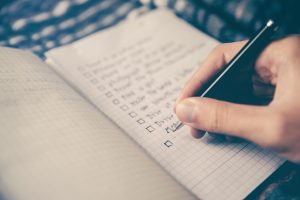As a paralegal handling personal injury cases, it is essential to stay organized and ensure that all necessary steps are taken to support your attorney and provide quality assistance to clients. This personal injury checklist for paralegals will help you navigate the intricacies of personal injury cases and maintain an efficient workflow.
-
Initial Client Meeting
– Schedule and prepare for the initial client meeting.
– Gather relevant documents, such as accident reports, medical records, and insurance information.
– Take detailed notes during the meeting, including the client’s account of the incident, injuries sustained, and any potential witnesses.
-
Case Investigation
– Conduct a thorough investigation into the accident, including gathering evidence such as photographs, videos, and witness statements.
– Obtain and review police reports, accident reconstruction reports, and any other relevant documents.
– Request and review medical records, bills, and other documentation related to the client’s injuries and treatment.
-
Document Preparation
– Assist in drafting legal documents, including demand letters, complaints, and discovery requests.
– Prepare and organize exhibits for trial, such as photographs, medical records, and expert reports.
– Create a comprehensive file system to ensure easy access to all case-related documents.
-
Case Management
– Maintain regular communication with clients, keeping them informed of case developments and answering their questions.
– Coordinate with medical providers, insurance companies, and opposing counsel as necessary.
– Schedule and manage depositions, mediations, and court appearances, ensuring all deadlines are met.
-
Legal Research
– Conduct legal research on relevant statutes, case law, and regulations related to the client’s case.
– Stay updated on changes in personal injury law and emerging legal trends.
– Prepare summaries of legal research for use by the attorney in case strategy development.
-
Settlement Negotiation
– Assist in preparing settlement demand packages, including a detailed account of the client’s injuries, medical expenses, and other damages.
– Communicate and negotiate with insurance adjusters to achieve a fair settlement for the client.
– Keep detailed records of all settlement negotiations and offers.
-
Trial Preparation
– Assist in preparing witnesses for deposition and trial testimony.
– Organize trial exhibits and coordinate with expert witnesses.
– Prepare trial notebooks containing all relevant documents and exhibits for easy reference during trial.
-
Post-Trial Support
– Assist in drafting post-trial motions, such as motions for judgment or appeals.
– Prepare and organize closing files, ensuring all documents are properly stored and archived.
– Provide support for any additional legal needs, such as enforcement of judgments or subrogation claims.
By following this personal injury checklist for paralegals, you can streamline your workflow, ensure thorough case preparation, and provide valuable support to your attorney and clients. Remember to adapt the checklist based on the specific requirements of your firm and jurisdiction.